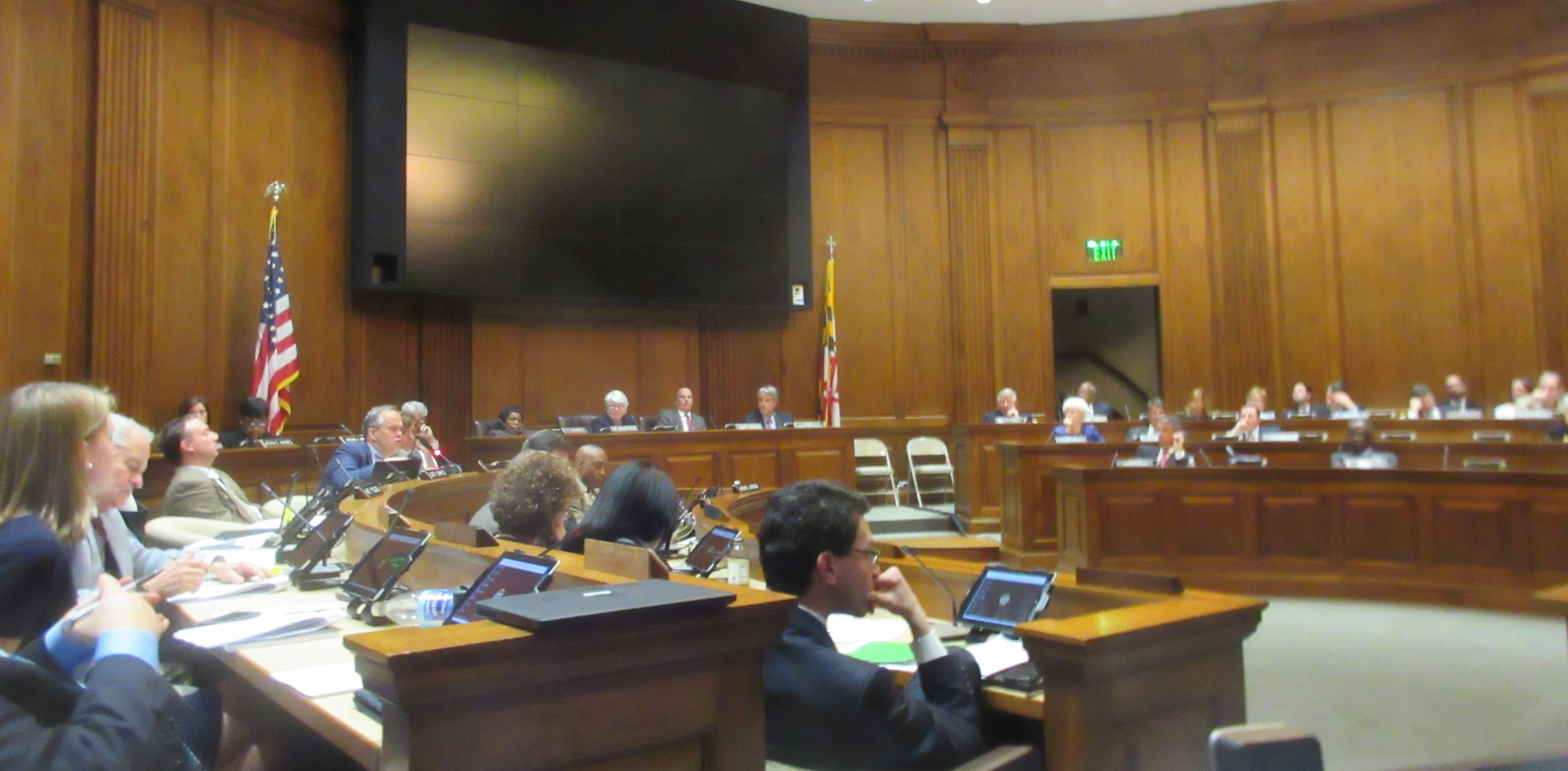@BryanRenbaum
U.S. Sen. Chris Van Hollen, D-Md., Friday said he agrees with President Joe Biden’s recent suggestion that the Senate should either reform or eliminate the filibuster rule.
Democrats are trying to pass legislation to expand voting rights protections, key social safety net programs, and make expansive infrastructure improvements.
Biden addressed the filibuster at a CNN town hall event in Baltimore on Thursday evening. The president did not specify what filibuster reform might look like, but he did express frustration about the fact that senators are no longer required to indefinitely hold the floor to block legislation.
Under Senate rules, it takes 60 votes to invoke cloture or cut off debate. Democrats have 51 votes when Vice President Kamala Harris’ constitutional authority to cast a tie-breaking vote is considered.
But replacing the filibuster with a simple majority threshold may not be enough to help Democrats pass many of the Biden administration’s key domestic priorities because some of those initiatives have met inter-party opposition via Sens. Joe Manchin of West Virginia and Krysten Sinema of Arizona.
“We need to reform the filibuster in order to make the Senate work,” Van Hollen told MarylandReporter.com. “I think it is vital that we pass the Freedom to Vote Act, which is the bill that would provide uniform national standards to protect people’s access to the ballot box.”
“In my view, the filibuster is an antiquated and anti-democratic provision that needs to be eliminated or reformed. It is important to reform it to save our democracy. But it is also important to reform or eliminate it to make the Senate work,” Van Hollen added.
Van Hollen echoed similar sentiments to Biden on the evolution of the filibuster.
“It is totally different today. Today you can be opposing the bill and you can go home. You do not have to be in the Senate. And you can succeed in blocking it (legislation).”
But not everyone said they support altering the filibuster rule.
“He (Biden) is making a terrible mistake and as a former senator he should know better,” former U.S. Senate Majority Leader Trent Lott said.
Lott, a Mississippi Republican, said he understands Biden’s frustration with partisan gridlock but that doing away with the filibuster is not the answer.
Lott echoed a refrain from former U.S. Sen. Tom Daschle, a South Dakota Democrat with whom he had a close working relationship with when the two shared power in a 50-50 Senate in the early 2000s.
“When you pass legislation with 60 votes, it has bipartisan support. It has much broader and usually universal and long-term support. If you pass it on pure partisan votes, you have continuing problems.”
“They (Democrats) need to get over the fact that they do not have 60 votes and find a way to work together to get it done. We did it when we had a 50-50 Senate. We were able to pass a tax bill. We were able to pass education,” Lott added.
However, Lott did say that he is in favor of eliminating the filibuster on the Motion to Proceed (MTP) to legislation, a tactic that often prevents many bills from receiving even preliminary consideration.
“It is dilatory. I was often embarrassed by that because you are basically saying you do not even want to debate the issue.”
Richard Vatz, a professor of political persuasion at Towson University, said proposals to alter the filibuster are shortsighted.
“The filibuster is perfectly suited and critical for the Senate, a body that was designed to slow down runaway irresponsible policy-making and give support to more contemplative decision-making. Moreover, for simply Democratic interests, should the Republicans gain a majority in the Senate, they would rue the day that they eliminated the filibuster for short-term gain. It, incidentally, is part of inherently progressive imprudence that Democrats do not consider long-term consequences in their legislating mode.”
And altering the filibuster would make a mockery of Biden’s pledge of bipartisanship, Vatz said.
“The contradiction that Biden’s considering supporting an end to the filibuster while his whole presidential campaign had as a basis bipartisanship and inter-party cooperation is one of his bigger contradictions.”
A filibuster in the traditional sense means that a senator cannot yield their right to be recognized by the presiding officer for any reason whatsoever if the senator wishes to prevent debate on a particular piece of legislation from moving forward. That means no exceptions for food, sleep, or to go to the bathroom.
This tactic was used for over 14 hours by then-and-now-late U.S. Sen. Robert Byrd of West Virginia in an unsuccessful attempt to block passage of the Civil Rights Act of 1964.







Recent Comments